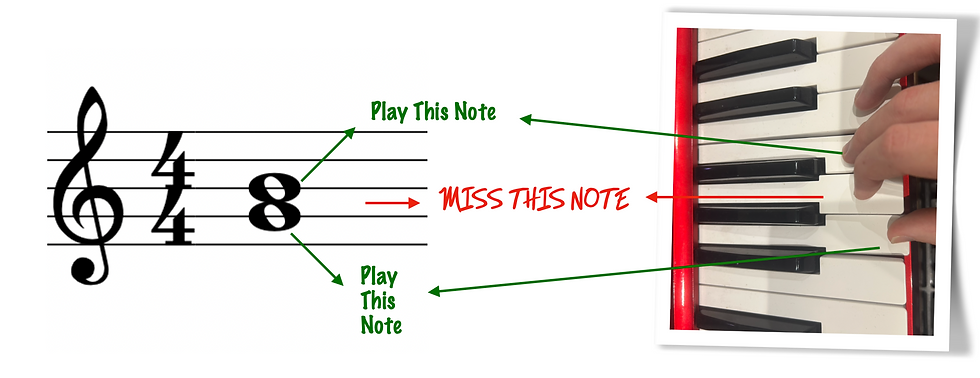Practice Journal: "Fantasia and Sonata in C Minor" - Mozart - Part One
- Jack Mitchell Smith

- May 4, 2023
- 3 min read
Since I began writing these practice journal posts, I am well into Mozart's Fantasia in C minor. The score is written across ten A4 pages, yet upon starting these posts I find that I'm already a good six pages in.
That is to say I can fairly confidently and fluently perform (with sight reading, as necessary) the first few movements.
On the seventh page and the penultimate double spread begins the movement titled 'Più Allegro';

Whilst the music isn't overly complex, it certainly isn't a movement that you would be expected to play with great accuracy at speed straight away.
Therefore, I am performing this much, much more slowly than the final thing will be.
This is for two reasons:
Finger Accuracy: Developing strength and independence in my fingers is still very much - and always will be - a work in progress for me. However, it should be noted that with the best will in the world there will always be stronger fingers. For example, the thumb and index finger (1 and 2) will always be stronger than the ring and pinkie (4 and 5). Slowing the piece down allows my brain to much more accurately focus on which finger is needed for which note, as with a piece that is continuous demi-semiquavers - particularly one that modulates its pattern at regular intervals (in this case downwards) - it is of the utmost importance to get the correct finger on the correct note at the correct time to allow for a continuous and confident performance.
Even Rhythm: This ties somewhat in to the above point because it is linked to finger strength and correct fingering, but as the old adage goes: it is very important to be able to play a quick piece of music slowly as this is the real test. If you are playing it slowly and you find that the rhythms are faltering then that is a sign that you need to practice further. For a piece such as this that sticks to a very regimented tempo, the metronome has been employed at a nice, steady tempo.
Sadly, my metronome is broken at the moment and so I am having to rely on my phone. The same phone that took this video. Because I figured the noise of the phone's own speaker would resonate terribly, I did this recording without a click, but I still tried to keep an even, steady tempo:
I had to retry those bars at the end because I fluffed up the fingering slightly. Also, I am aware that I got carried away with the Demi-semiquaver rhythm and therefore continued playing the sudden semiquavers still as Demis, which probably will allow for a much easier performance of this passage as it does involve quite a stretch. This slowing down (half tempo, of a fashion) will enable these bars to be performed more confidently even at this stage if I were to speed up. However, I will persist at the current tempo!
Demi-Semi Quavers - Straight Notes vs. Triplets
One of the other reasons for practising slowly is to allow for the brain to comprehend some of the more complex rhythms. Just past the halfway point on the first page of the double spread, the left hand begins playing triplets underneath the regular Demi-semiquaver pattern in the right hand.
For the purposes of regaining confidence in doing so (as it is the much more complex way of doing this - performing triplets in the right hand against straight rhythm in the left is far easier!), I have sacrificed very slightly the evenness of a good triplet and given a rhythm much closer to two hemi-demi-semiquavers followed by a Demi-semiquaver to coincide with the final note of the right hand pattern. One I am more confident in the note placement, I will be able to work on spreading these out a little more.
Meanwhile, I have discovered a handful of online exercises that allow for development in playing these rhythms against one another. Although they focus more on taps and claps rather than fingers, it will definitely help me along.



Comments